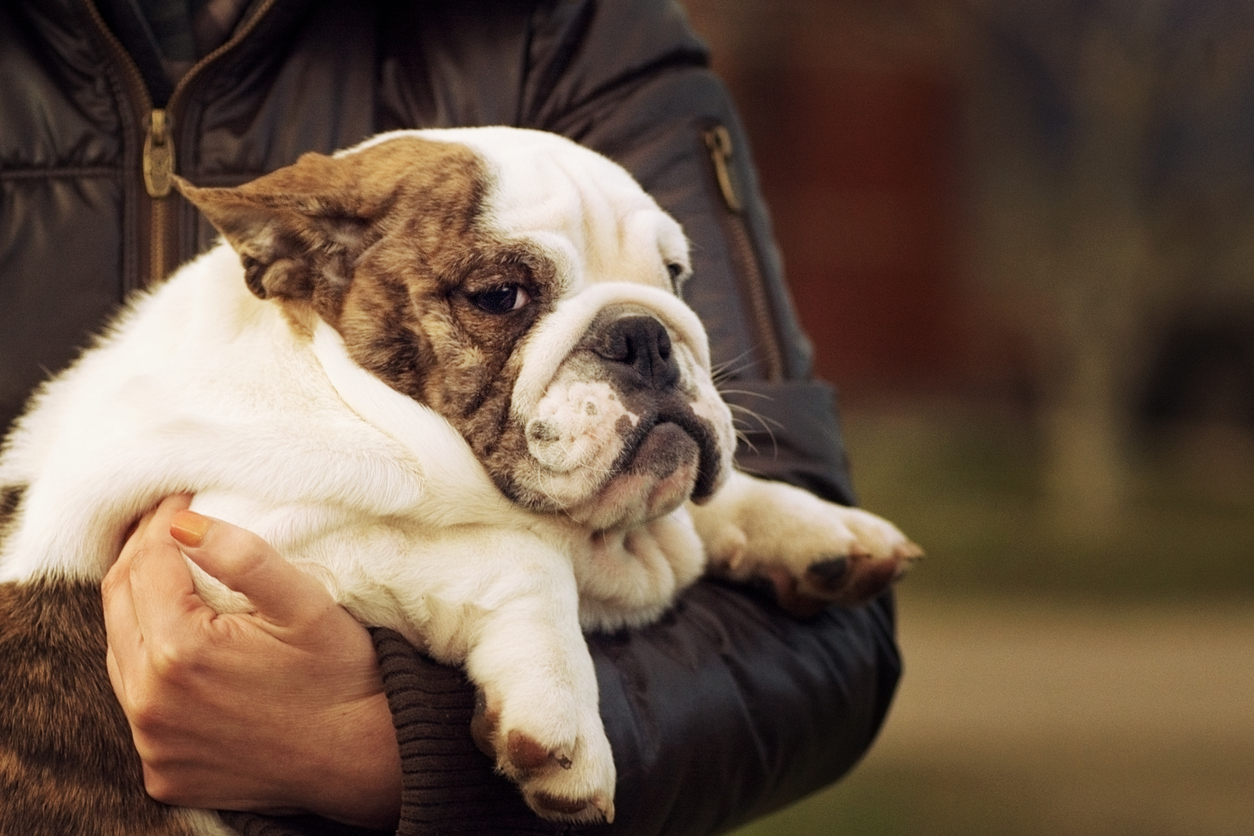
Your pet’s healthy weight
The first step to take when assessing your pet’s weight is to talk to your vet. Your veterinarian can look at the overall health of your pet, including weight, diet and physical activity.
Your vet can also educate you about how your pet’s body shape and feel is a quick and effective assessment method. Healthy body composition is just as important as the actual numbers on a scale.

Benefits of maintaining a healthy weight for your pet
Studies have shown that pets carrying extra weight can have their life expectancy reduced by two years or more.
A consistently healthy weight acts to lower your pet’s chances of developing kidney disease, high blood pressure, diabetes, respiratory issues, and even certain cancer types.
Excess weight also creates a risk of joint, bone and muscle injuries that are lessened when your pet is near their ideal weight.
For pet’s suffering from arthritis, keeping off extra weight makes the discomfort easier to deal with. Simply put, maintaining your pet’s weight greatly increases the odds of them living a longer, fuller life.
How do I get rid of my pet’s excess weight?
Just like with human weight loss, there’s no single solution or magic pill. Different strategies can work with different pets (and their owners). In general, getting your pet to a healthier weight requires a commitment on your part to engender a healthier lifestyle.
Think of it as calories in vs. calories out. More exercise and activity, and less calories taken in is the basic tried-and-true formula. Keep in mind, even a small amount of weight loss has benefits. So don’t give up, weight loss doesn’t happen overnight.

Make your pet the priority
Your pet’s good health and longevity is the most important thing. You can work with your veterinarian to assess you pet’s weight and overall health objectively. Discuss any previous medical problems, they may be causing weight gain or be made worse by excess weight.
It’s not about you, it’s about your pet
You may want to make lifestyle changes too, or you might not. Either way, any assessment and recommendation of your pet’s weight isn’t an indictment of your lifestyle. It’s not a judgement about how you care for your pet. It’s about your pet’s wellness and health, and any suggestions or assessments aren’t directed at you.
Make a commitment with the whole family
Helping your dog reach their healthiest weight requires a commitment from the whole family. If someone likes to give extra treats, even if it’s out of love, the weight loss plan will go off track. Take some time to remind everyone that there are a lot of great ways to show your pet that the whole family loves them.
Provide your pet a nutritious diet
A great way to trim extra calories from your pet’s diet is to stop feeding any table scraps or over-processed treats with filler ingredients. Don’t give in to adorable begging, and focus on healthy treats.
Some animals just love eating their food in huge gulps. In that case, there are special bowls and other products available to help mitigate your pet gulping their food. Other products dispense the food in smaller amounts, as smaller frequent meals have shown benefit for some pets.
The quality of your pet food is another important factor to consider. Your veterinarian can help you figure out if a change in pet food to something more nutritious is in order.
Also talk to your vet about the ideal feeding amount. Sometimes the amounts on the label aren’t the right amount for your pet’s needs.
Set realistic goals
You can make a plan with your vet to create attainable weight loss goals for your pet. Rapid weight loss can cause issues, so keeping the weight reduction steady and focusing on overall health is the way to go.
Have fun with it
The whole family will benefit from more activity with your pet and consciously living a healthier lifestyle. To make sure you all enjoy the process include your favorite walks, games and other activities that you really like.
Monitor and record progress
Monitoring and keeping track of your pet’s weight is an important aspect of the weight loss process. Keep in mind, there will be ups and downs. But by recording progress, you’ll be able to figure out what works and what doesn’t. That way you can make adjustments as you go.
Talk to your veterinarian about your pet’s ideal healthy weight – it’s the best way of ensuring he/she lives a longer, healthier life with your family.




